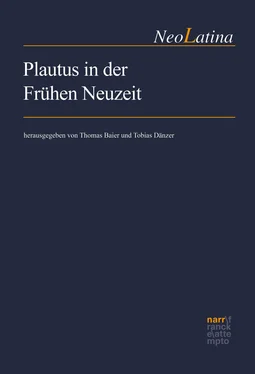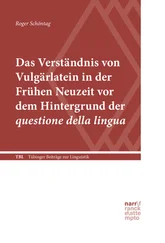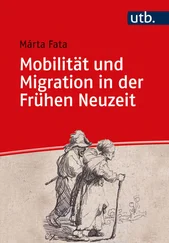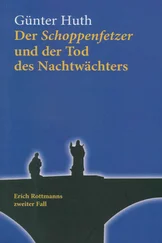Angelo Ambrogini, known as PolitianPoliziano, Angelo, was one of the few at that time to take an interest in the texts transmitted in fragments. He worked on CallimachusKallimachos’ Lock of Berenice , Hecale , and Aetia when other scholars were dealing only with the hymns, and he studied EupolisEupolis’ Demoi EupolisDemoi.28 PolitianPoliziano, Angelo dedicates chapter 91 of his Miscellaneorum centuria prima Poliziano, AngeloMiscellaneorum centuria prima to this comedy and, with regard to collections of fragments, writes:29
agedum (si placet) ipsos ex EupolidosEupolis δήμοιςEupolisDemoi (id enim comoediae nomen) versiculos subiiciamus, gratum puto futurum studiosis, si ceu spicilegium racemationemque faciamus, aut si tabulas veluti quaspiam ex hoc literarum naufragio collectas, in corpus aliquod restituamus.30
With this passage PolitianPoliziano, Angelo inaugurates the successful tradition of the shipwreck simile comparing the remains of ancient authors to those of a sunken raft, which was destined to become a topos when referring to the collections of fragments.31
When PolitianPoliziano, Angelo argues about the linguistic variety of a classical author or when he himself makes use of rare Latin words, he often turns to Plautus.32 In a couple of cases, fragments are involved. A few years ago, attention was drawn by Silvia Rizzo to a fragment taken from Plautus’ Frivolaria :33 on the basis of early manuscripts PolitianPoliziano, Angelo restored the term sororientes in Pliny the ElderPlinius d.Ä. ( nat. hist . 31, 66). He used this hapax also in his poem Puella .34 Later, however, after finding in Plautus the attestation of sororiare ( Frivol . VIII Monda, quoted by Festus p. 380 Lindsay), PolitianPoliziano, Angelo thought that Pliny’s reading should be corrected to sororiantes 35 and so he wanted to replace this form also in his poem.36 Another Plautine fragment ( inc. XV Monda), also drawn from Festus, is quoted by PolitianPoliziano, Angelo in his commentary on line 35 of TerenceTerenz’sTerenz Andria TerenzAndr. (p. 42, 14 Lattanzi Roselli): ‘Deiurare’: eiuratio – ut Festus – significat id quod desideretur non posse praestari. Plautus: eiuravit militiam .
So, in the fifteenth century, excepting perhaps PolitianPoliziano, Angelo, there was no great interest in fragmentary works, nor for collecting them. In the case of Plautus (though the point can be extended to all the playwrights) there are no traces of editions of fragmentary plays in humanistic manuscripts. The advent of the printing press, however, favoured larger and more complex publishing operations.37 The Vidularia Vidularia, of course, at this point remained one of the lost plays.
The editio princeps by Giorgio MerulaMerula, Giorgio (1472) and the two editions by Eusebius ScutariusScutarius, Eugenius (1490 and 1495) did not contain the fragments, but at the end of the fifteenth century the times were ripe for a collection of Plautus’ lost plays.38 Thus, in the Plautus cum correctione et interpretatione Hermolai, Merulae, Politiani et Beroaldi et cum multis additionibus , probably published in Milan in 1497,39 we find in the appendix a small sylloge of fragmentary texts: Ex multis Plauti comoediis hae reperiuntur citatae a gravissimis authoribus: M. Tulio C., Au. Gellio, Nonio Marcello, Festo Pompeio et Prisciano, quas ordine litterarum dissposuimus (sic). The collection contains only fragments of plays of which the titles are preserved: Astrabacum, Carbonaria, Commorientes, Cornicularia, Epodus, Frivolaria, Lenones, Lipargus, Medicus, Moechus, Nervus, Plotium, Polegus, Saturio, Stematicus, Synephoebi (sic), Vidularia Vidularia. Many of them are clearly wrong; for instance the Synephebi is assigned to Plautus instead of Caecilius StatiusStatius; Epodus is the Epidicus Epidicus (35–36); from the Polegus is quoted the line ut rem video te inventum a vanitudine , which is actually Capt .Captivi 569 (with variant readings), which begins with the words pol ego , which have been mistaken for a title; the Moechus is explicitly taken from GelliusGellius 1, 7, 3, who writes ut in Plauti comoedia moechus eqs. ; but, if moechus were a comedy title, it would be in the ablative case in Gellius’ passage: in the nominative case it must be the subject of the sentence and therefore this adulterer has to be recognized as a character (the situation recalls Bacch .Bacchides 918 or Poen .Poenulus 862).
Many other editions follow, including one, with a commentary, by Giovan Battista PioPio, Giovan Battista (Mediolani 1500) which does not contain fragments, but which often compares or restores Plautine passages with the help of fragments, or the edition by Symon CharpentariusCharpentarius, Symon (1513) which reproduces exactly the same fragments as those of the Milanese incunable.40
The first real edition of Plauti deperditarum fabularum fragmenta is that of Georg FabriciusFabricius, Georg,41 printed in the second edition of Plautus’ plays by Ioachim CamerariusCamerarius d.Ä., Joachim in 1558.42 The first edition of this work,43 as is well known, marks a milestone in the history of modern Plautine criticism: CamerariusCamerarius d.Ä., Joachim, who had at his disposal the manuscript B (Vat. Pal. Lat. 1615, 10th–11th century, the so-called Vetus Camerarii ), was able to read, at the end of the Truculentus Truculentus, the note (f. 211v) Plauti | Truculentus Truculentus explicit incipit Vidularia Vidularia | Vidularia Vidularia.44 And so he was the first scholar to understand that Vidularia Vidularia was one of the twenty-one Varronian comedies. His first edition did not contain the fragments, but in the introductory letter some titles of non-Varronian comedies are mentioned. The text is as follows (pp. 900–901):
Viginti tamen et unam Varronem Plauto sine dubitatione attribuisse accepimus quae et ‘Varronianae’ appellatae fuerunt. Eae, ut opinor, quae adhuc extant, et praeter illas insuper VidulariaVidularia, cuius et in nostro veteri libro nomen exaratum cernitur, sed in hac inscriptione ille finitur, cum magno crimine inertis et pigris scriptoris qui non addiderit ad titulum etiam fabulam. Verum, praeter illas, haec a grammaticis Latinis nomina fabularum Plautinarum commemorata annotavimus: Astraba, quod vehiculi genus est (Straba etiam legitur, haud scio an falso, in Nonio interpretante verbum ‘reciprocare’), Cornix, Cornicula, Cornicularia (nescio una ne a librariis mutato nomine, quod scriberetur in veteribus exemplaribus dimidiatum, an tres diversae), Parasitus, Medicus, Nervolaria, Frivolaria, Plocinona, Sisennaria, Carbonaria, Colax (quo nomine et Naevii fuit fabula), Lepargus, Lenones, Gemini (quod nomen in libro VI Prisciani legitur; in Gellio autem Gemini et Leones, ut videtur, mendose), Dyscolus, Artemona, Phasma, Patina vel Patinaria, Hortulus, Persae, Caecus, Praedones, Trigemini, CaptiviCaptivi (nam alia haec fuit, quam ea quae extat, cuius est nomen CaptiviCaptivi duo), Addictus, Saturio (quas in pistrino scripsisse perhibetur), Anus, Condalium, Bis compressa, Boeotia, Ἄγροικος, Fretum, Calciolus, Baccaria, Cacistus.
In the second edition45 the same text of the Epistola is anastatically reproduced: this implies that CamerariusCamerarius d.Ä., Joachim mentions titles that present differences and omissions compared to FabriciusFabricius, Georg’ edition of fragments printed in the same volume. The edition of the fragments is preceded by a letter (p. 912) from FabriciusFabricius, Georg dated 1550, which testifies that his work was ready in 1550: we do not know why it was published only in 1558. FabriciusFabricius, Georg for the first time collects both fragments of comedies of which we know the title and fragments incertae sedis (pp. 913–935); there follows a list of sources (pp. 925–935). There are still many errors and wrong attributions, both often due to errors of transmission in the texts of the sources used.
Читать дальше












